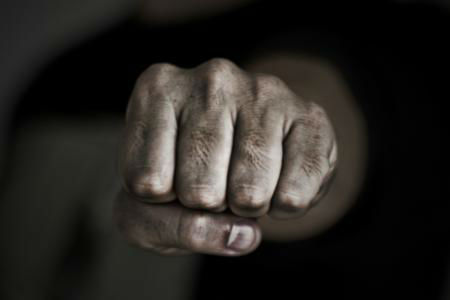The cycle of domestic violence
Whether we like it or not, athletes hold a great deal of influence in our pop culture -- so much so that every year Americans are asked by research firms, like Nielsen and E-Poll, which pro athletes they believe carry the most influence with the public. These rankings then drive decisions about which athletes get the biggest endorsement contracts from corporate sponsors (think LeBron James with Nike, and Peyton Manning with Papa John's).
From the athletic fields and stadiums where the games are played to print and electronic media, the role that professional sports and athletes play in our collective lives is significant, and makes the past few weeks both troubling and thought provoking.
The NFL's response to players' off the field violent behavior has elicited wide-ranging responses from many -- team owners, sports commentators, fans, the players, and their families -- as well as those who have been victims.
At Catholic Charities, we believe that no one -- no child, woman or man -- deserves to be hit. For us, there have been many concerning reactions to the news of the past few weeks. Among the most concerning reactions have been from those like the female Ravens fan wearing Ray Rice's jersey, who told a Comcast SportsNet reporter: "I wear the jersey in support of Ray Rice because I love Ray Rice, I'm sorry. I don't believe in abuse but she struck him first and any woman who can hit a man can be hit back."
This fan's response, as well as responses from others, including the NFL, have served to highlight how difficult and frequently misunderstood the issue of domestic violence is in our culture.
There is much to learn from the research about the victims, the abusers, and the many and varied consequences of domestic violence. For example, the National Coalition for Prevention of Domestic Violence estimates that 1 in 4 women are victims of abuse and research has found that, without help, girls who witness domestic violence are more vulnerable to abuse as teens and adults. We also know that without help, boys who witness domestic violence are far more likely to become abusers of their partners and/or children as adults, thus continuing the cycle of violence in the next generation.
Domestic violence has been cited as the third leading cause of family homelessness. It as also been found to have negative health consequences for the victims and their children, as survivors of domestic violence face high rates of depression, sleep disturbances, anxiety, flashbacks, and other emotional distress.
Sadly, whether at our food pantries, in our early childhood classrooms, in our shelters, or in our young parent and family support programs, at Catholic Charities, we frequently see the toll that domestic violence takes on children and their families. We work to support impacted family members, with safety a paramount concern.
We also work to try to break the cycle of violence -- particularly in our work with young fathers. Our Father's Support Program welcomes those interested in learning how to improve their relationships with their children. Most of these young men were raised in homes where their own fathers were either absent or were negative influences, and are hoping to do better. The program provides basic child development education, and introduces dads to healthy and helpful ways to interact with their children. One major tenant of the program is the need to "treat the mother of your children with respect," a respect that is so often missing in abusive relationships.
At Catholic Charities, we are committed to helping men and women, fathers and mothers, learn to be more respectful in their relationships with each other and with their children. Together, we need to find a way to end the violence.
Go to www.ccab.org to discover more about our work.
Deborah Kincade Rambo is president of Catholic Charities of the Archdiocese of Boston.
- Deborah Kincade Rambo is president of Catholic Charities of the Archdiocese of Boston.



















